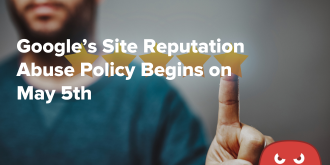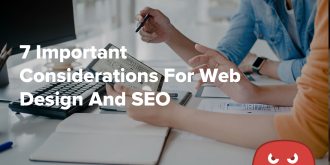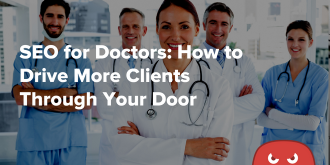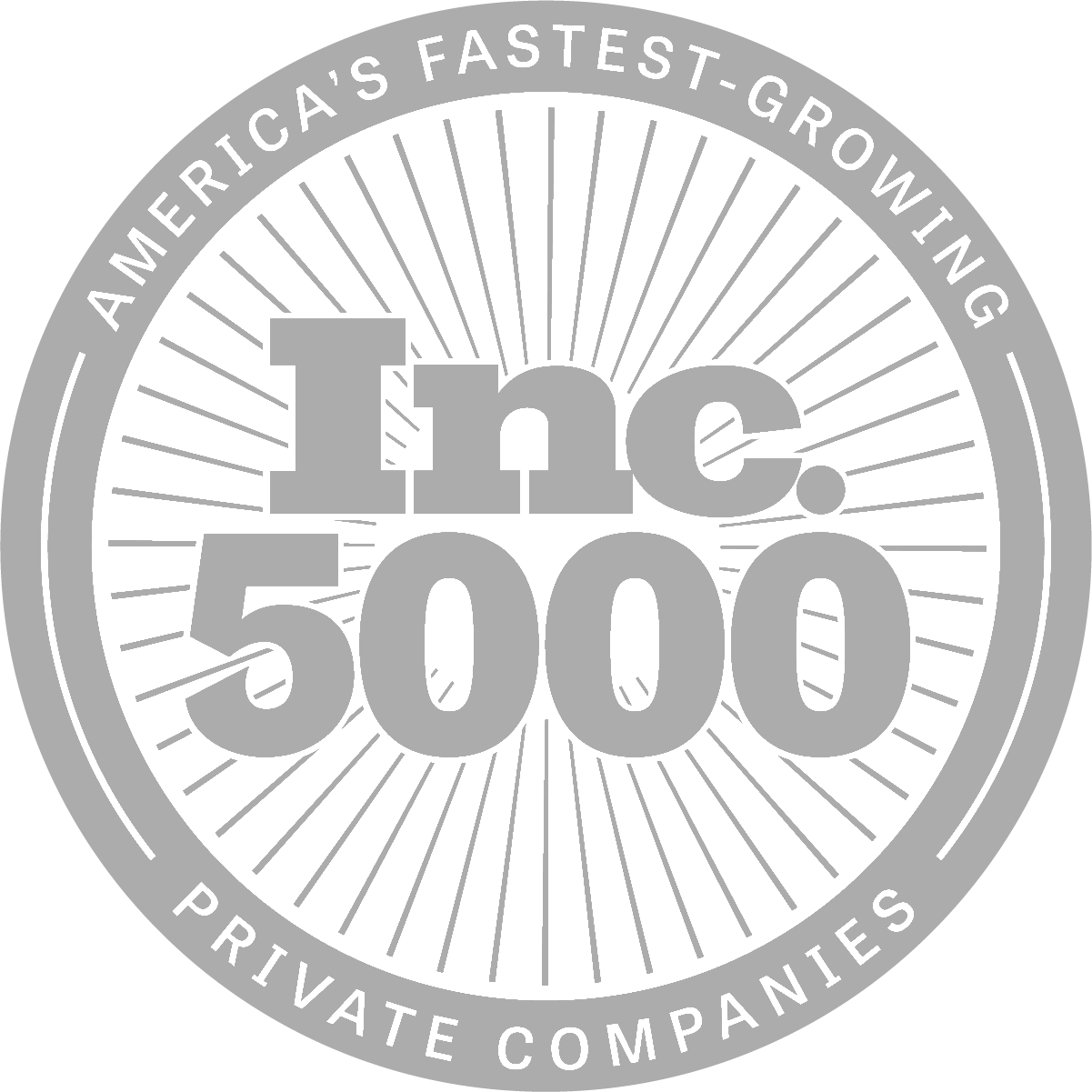Quick Links
Digital marketers have been fiercely arguing for years now whether SEO or PPC is more effective, and the debate will continue into 2024.
Yet, the conversation looks a lot different now than it did just a few years ago.
In particular, Google’s SGE is set to throw a wrench into traditional search methods due to how drastically it alters the search experience.
Organic search results will appear beneath helpful AI Snapshots that directly answer users’ questions – thus diminishing the top-ranked organic spots on queries featuring a Snapshot.
Paid ads are also getting an overhaul, as they’ll appear in conjunction with Google’s new generative AI features.
Things like voice search are set to become more prevalent in 2024, and CPC fees (cost-per-click) have been on the rise due to inflation.
As such, there are lots of new considerations to take into account when comparing SEO and PPC that didn’t exist just one year ago.
Don’t get us wrong; they’re still two of the most effective marketing channels that exist online and will continue to be for many years to come.
If you want to make the most out of your marketing strategies, you’ll need to understand the differences between SEO and PPC to determine which is best for your business.
Read on to learn everything you need to know about paid ads and organic SEO, including notable pros and cons.
SEO 101: Understanding Search Engine Optimization
First, let’s take a look at what SEO can do for your business.
SEO stands for search engine optimization, and it’s the practice of modifying your web content to rank better for your most important keywords on search engines like Google.
Search engine crawler bots look for specific ‘ranking factors’ when determining the order of search results for a particular query, and SEO is all about learning and incorporating those factors.
Touch on the most crucial factors, and the search engine gods will reward you with high rankings (positions 5 and up) for keywords related to your business (queries your target audience looks for online).
Some of the most important ranking factors include:
- The quality and relevance of your content (do your web pages satisfy the user’s search intent?)
- Keyword placement and usage (first 100 words, title tag, and H1 heading, numerous times throughout the content)
- The strength of your backlink profile (the number of trusted websites that link to your content)
That’s all well and good, but what about the bottom line?
We’re glad you asked.
SEO as a marketing practice has endured for so long for one very important reason: it works.
Why is SEO effective for digital marketing?
Whether your audience wants to look up information, answer a question, or make a purchase – they all turn to the mighty Google first (93% of the time, to be precise).
Therefore, if you’re able to obtain the #1 position for keywords related to your business, you’ll generate loads of organic traffic that you can then convert into leads and customers.
When you combine SEO with CRO (conversion rate optimization) – the sky’s the limit with what you can achieve.
Scaling your business and expanding internationally become possible with a winning SEO strategy.
Another reason SEO is so popular amongst marketers is there’s no upfront cost involved.
In fact, if you have loads of free time and a small website, you can develop and roll out an SEO campaign almost entirely by yourself (although you’ll probably need assistance with link-building).
Also, SEO efforts famously have a compounding effect, where the content you worked hard to establish continues to generate traffic, leads, and sales for many months to come.
If your content is evergreen (meaning it doesn’t go out of date), a highly-ranked piece of content will continue working for you indefinitely.
By updating older pieces (such as changing 2023 to 2024), you can make them relevant again – which means they can generate more moolah for your business.
Lastly, SEO content creation is an excellent way to become a thought leader in your field, as proper keyword research will ensure that your content topics are exactly what your audience wants to see.
Unpacking PPC: How Effective are Paid Ads for Promoting Your Business?
Now, let’s dive into the world of pay-per-click (PPC) ads to see how they differ from traditional SEO.
With PPC, you pay a service like Google or Microsoft a fee every time a user clicks on one of your ads. The tradeoff is that your ads will appear directly at the top of the SERPs (search engine results pages).
That saves you the trouble of having to do months (or even years) worth of organic SEO to reach the top-ranked positions.
Another bonus is that PPC ads appear above the organic search results, meaning you’ll reign above even the #1-ranked organic result.
The catch?
Paid ads are hit with a sponsored tag for the world to see, letting everyone know that you paid for your spot.
Regardless, paid ads are an effective way to start generating traffic and leads from day one, which comes in handy for new sites still trying to overcome their obscurity on the SERPs.
Yet, PPC requires some smart planning and in-depth keyword research to yield the best results.
Do it wrong, and you’ll waste your budget on clicks that don’t lead to conversions.
Remember, just because someone clicked on your ad is no guarantee that they’ll make a purchase or sign up for your newsletter.
Just like SEO, you need to incorporate CRO into your PPC strategy for maximum effectiveness.
That way, your ads will direct users to landing pages designed to convert, greatly increasing your chances of generating a lead or sale.
How Are SEO & PPC About to Change?
The search engine marketing and advertising world is on the cusp of some huge changes, and both SEO and PPC will look drastically different in a few short months.
Why is that?
It primarily has to do with the advent of generative AI in search engines, particularly Google’s SGE, which is set to go live in early 2024.
As stated previously, acquiring a #1-ranked organic spot is a very powerful position to hold, and PPC ads appear even above that on the SERPs.
However, SGE’s AI Snapshot is about to mix up SERP real estate in a big way.
For some queries (not all), Google will generate an AI Snapshot where its GAI (generative AI) directly answers the query and cites 3 online sources.
This AI Snapshot appears ABOVE the organic search results and SERP features, which means most users will get what they need from the Snapshot and stop scrolling.
Paid ads still appear at the top of the page, and SGE even incorporates PPC ads into some of its auto-generated results.
Also, evidence shows that if you’re already ranking in the #1 or #2 spot for your keywords, Google is far more likely to cite your content in the Snapshot.
Moving forward, both SEO and PPC strategies will focus heavily on getting featured in the AI Snapshot, which means targeting longer, more conversational keywords.
Organic SEOs will need to create lots of informative content that answers common user questions in-depth, as users will ask conversational-style questions to interact with Google SGE.
To Optimize or Not to Optimize: The Pros and Cons of SEO
Now that you’re familiar with SEO and PPC let’s weigh the pros and cons of each, starting with search engine optimization.
Pros
SEO remains one of the most effective digital marketing channels, and it’s a must for any business wanting to boost its online visibility.
That’s because when done correctly, SEO has an incredibly high return on investment.
32% of businesses even claim that SEO has the highest ROI out of all their marketing channels, which is a testament to its earning power.
Longevity is another advantage that SEO has going for it, as the content that you create will remain on the internet – and if you keep it updated (and make sure the links direct to the correct page) – it’ll continue to rank and generate traffic for you.
SEO is the gift that keeps on giving in this regard.
That’s in stark contrast to PPC because as soon as you stop spending money, your ads disappear – and your online visibility shuts off virtually overnight.
At its core, SEO is about establishing a robust online presence in your field.
In other words, enough high-quality content and authoritative backlinks make it virtually impossible to ignore you online.
Therefore, if you want to build your brand and gain a loyal following, SEO is arguably the best way to do so.
Lastly, SEO isn’t going anywhere.
Even with innovations like SGE and voice-powered search (using virtual assistants like Siri and Alexa), search engines remain incredibly popular – and it’s still more than viable to use them to market your products and services.
The tactics may change a bit, but seasoned digital marketers are used to that already. SEO has been an ever-changing and evolving game since its inception, and the laws of Darwinism have always applied.
To put it bluntly, if you don’t adapt, you won’t survive – and SGE SEO is just the latest iteration of that philosophy.
Cons
Since SEO is about building a massive online presence, it’s a long-term game.
As such, it takes quite a while before you’ll start seeing results, which discourages some in the beginning.
It’s normal for SEO to take up to 6 months to start bearing fruit (if you don’t have any easy win keywords, that is).
That’s especially true for brand-new websites still mired in obscurity.
Google prefers to rank established and trusted websites near the top of the results, which is why newbies have such a hard time getting their foot in the door.
SEO is also fiercely competitive.
Every industry and niche has literally thousands of websites competing for the #1 and #2 spot for their respective keywords.
Some industries feature so much competition that focusing on short-tail ‘industry’ keywords becomes next to impossible.
Legacy websites like Wikipedia, Amazon, and the NY Times have zillions of backlinks and tend to dominate the #1 spot for some keywords, and it’s pretty much impossible to compete with them.
In those instances, websites must shift to long-tail keywords that don’t have much search volume.
That’s not to say that you can’t kill it with a long-tail keyword strategy, as you definitely can – just that the competition you’ll run into online is no joke.
To Pay or Not to Pay: The Pros and Cons of PPC Advertising
Now, let’s dissect PPC ads to see if they’re truly worth opening your wallet.
Note that these pros and cons apply to both Google and Microsoft PPC campaigns.
Pros
New website obscurity is real, and it can be a real pain to deal with for new businesses.
A major advantage of PPC ads is how great they are for new websites.
With a little keyword research and some bid auctioning, you’ll be off to the races at the top of the SERPs.
This will help you generate some much-needed traffic to your new site, which is certainly a plus.
If your landing pages are optimized for conversions, you can generate some considerable revenue with PPC ads.
Another perk is the amount of control that PPC campaigns provide.
Unlike SEO, you’ll know precisely where your ads appear on the SERPs, as there’s no guessing involved. Beyond that, you’ll have control over the following factors:
- Locations
- Audiences
- Schedule (when the ads appear)
- Destination (blog post or landing page)
- Keywords
- Ad Copy and Message
This amount of control will improve your chances of generating leads and sales from your PPC ads.
Cons
As stated previously, if you don’t pay, you can’t play.
That means as soon as the money runs out, your time running PPC ads will come to an abrupt end.
Also, there’s no guarantee that a click will turn into a conversion.
If your CRO isn’t on point or if your customers simply prefer your competitors, your PPC campaign will waste a lot of dollars without generating any in return.
Not only that, but CPC fees are on the rise due to inflation.
As a result, CPC campaigns are more expensive than ever before, which definitely isn’t good for newer websites – who, coincidentally, are the ones that need to use PPC ads the most.
SEO vs. PPC: Making the Right Choice for Your Business
Now that the two are done duking it out, it’s time to declare a victor.
What, you didn’t think we were going to hit you with a lame “it depends on the situation” answer, did you?
After much consideration, we feel that SEO is the superior option due to its cost-effectiveness, longevity, and ongoing effectiveness.
That’s not to say that you shouldn’t use PPC whenever you need a quick boost in traffic or to gain visibility for your new website – just that it should always be in tandem with an organic SEO campaign.
Are you ready to reap the benefits of a successful SEO campaign? Then don’t wait to check out HOTH X, our renowned managed SEO service.












helpful